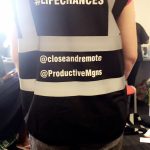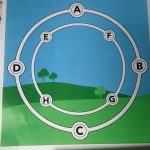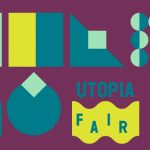Edmond J. Safra Fountain Court,
24 -26 June 2016, Free admission
Presented in partnership with the Arts and Humanities Research Council (AHRC) and the Connected Communities programme, the Utopia Fair will showcase the creative outcomes from 25 AHRC-funded projects alongside 10 additional initiatives that have been hand-selected by Somerset House. These projects work to bring together local community groups, researchers, activists and artists across the UK to explore how utopian ideals can be used to benefit the environmental and social future of our communities.
Each representing different utopian ways of living in the 21st century, stalls will feature interactive displays, events and activities and explore topics including the environment and city-living, food and fashion, community inclusiveness and arts and craft practices.
Participants include Somerset House and Makerversity resident organisation The Restart Project working in collaboration with art-science research network Bodies of Planned Obsolescence on a “marathon” Restart Party, with the aim of creating the longest community repair event ever held. Creative-minded individuals can contribute to a mural celebrating Nottingham’s black history, or purchase a unique garment made using repurposed fabric by Hackney-based sustainable fashion brand Everything in Colour.
The ‘Tea for Talk’ research group will be performing Alonely, a collection of stories based on the group research and written by them in collaboration Adam Peck. The group have been working over the last year on the Productive Margins Isolation and Older People project with the Southville Community Development Association and the University of Bristol exploring the isolation and loneliness of older members of our community in the Greater Bedminster area.
In collaboration with Closeandremote the Life Chances project’s stall will highlight a fictional novel, co-authored with community research volunteers about experiences of life on a low income and re-imagined futures. Also included is an exhibition and auction of jewellery based on the circular Life Chances logo, made by research volunteers, and an interactive ‘Game of Life Chances’ which can be played by members of the public, drawing on characters from the novel.
Activities taking place around site will also include discussion around London’s energy and transport futures by contributing to interactive maps of London, print their own utopian pamphlet using Utopian Works’ onsite letterpress, or even design their own utopian banknote with Brixton Pound.
In Thomas More’s seminal text Utopia, all meals were eaten communally so fair-goers can unwind at a long central dining-table where all are encouraged to mingle with their fellow utopians, whether with restaurant quality dishes by Save the Date Café made from ingredients destined for the landfill, or a sweet treat from Day Old Eats, the London start-up that takes surplus pastries, cakes and breads from the capital’s artisan bakeries and sells them at a discounted rate, with proceeds going to charities tackling youth hunger. For something more substantial, there’s Papi’s Pickles, a South Indian and Sri Lankan food stall which provides employment and training for unemployed women from the region based in the UK.













